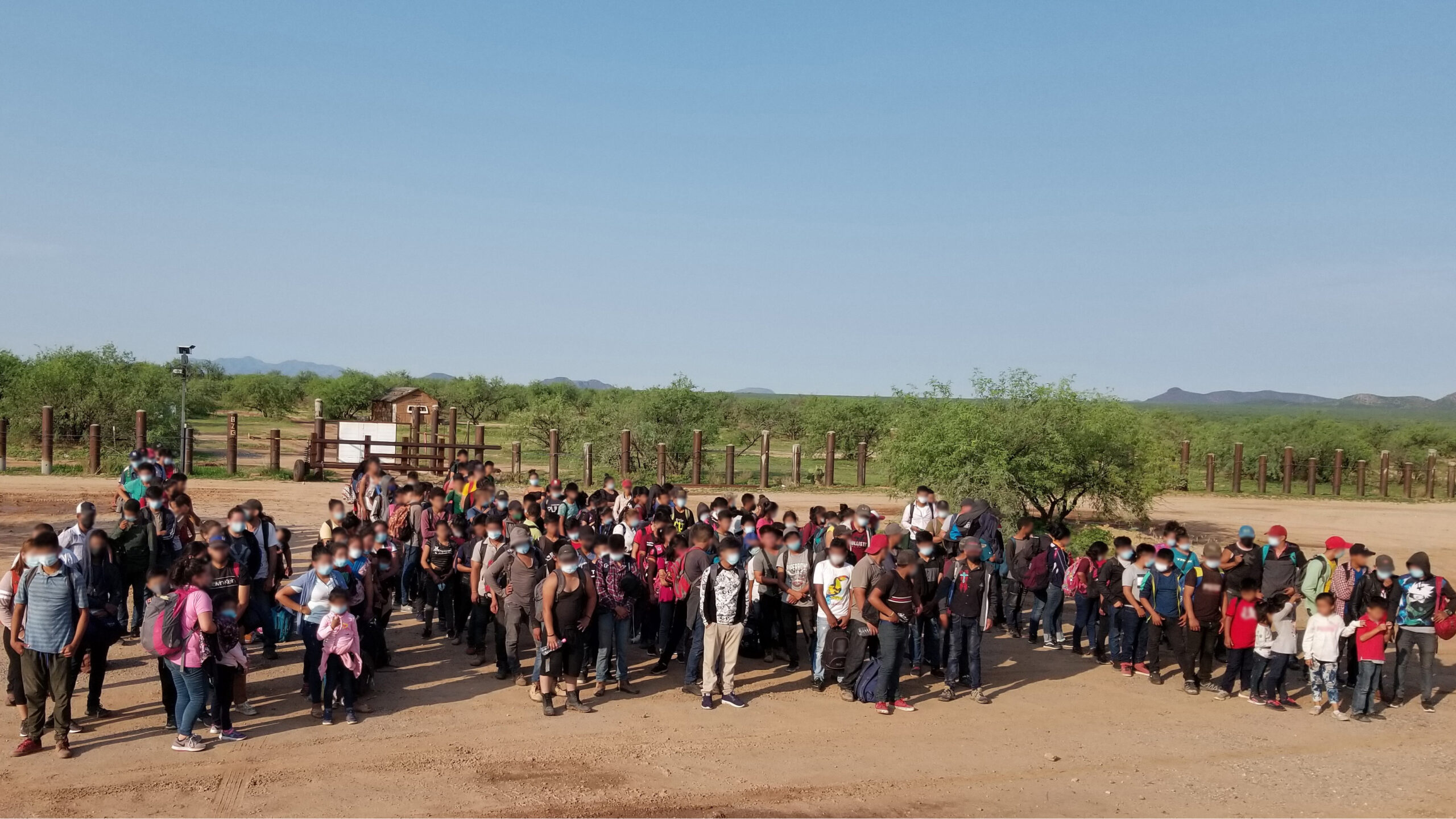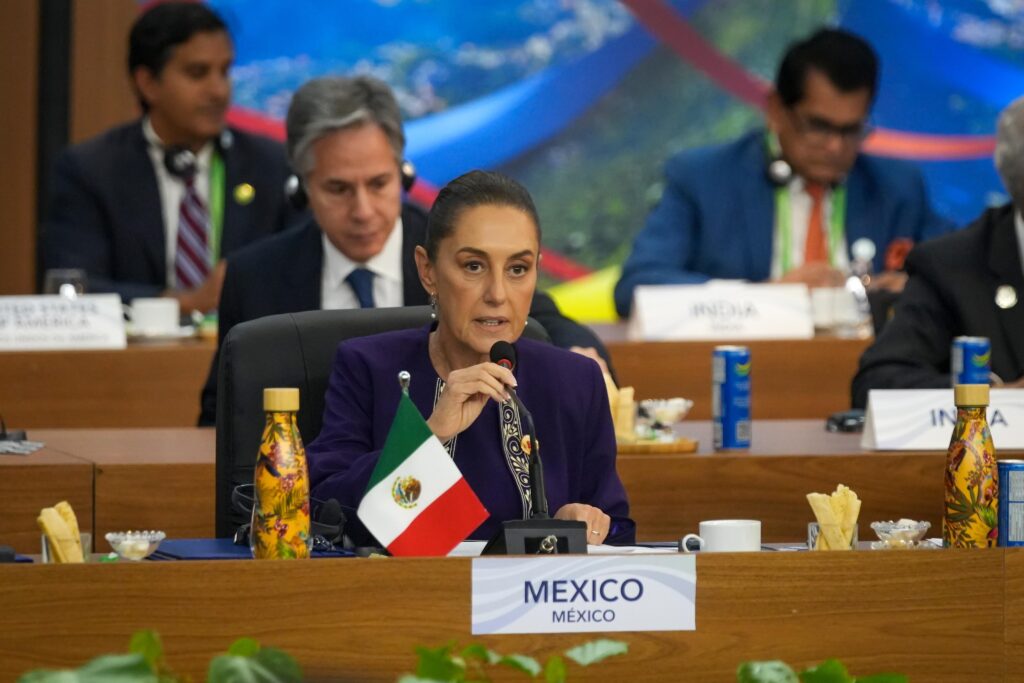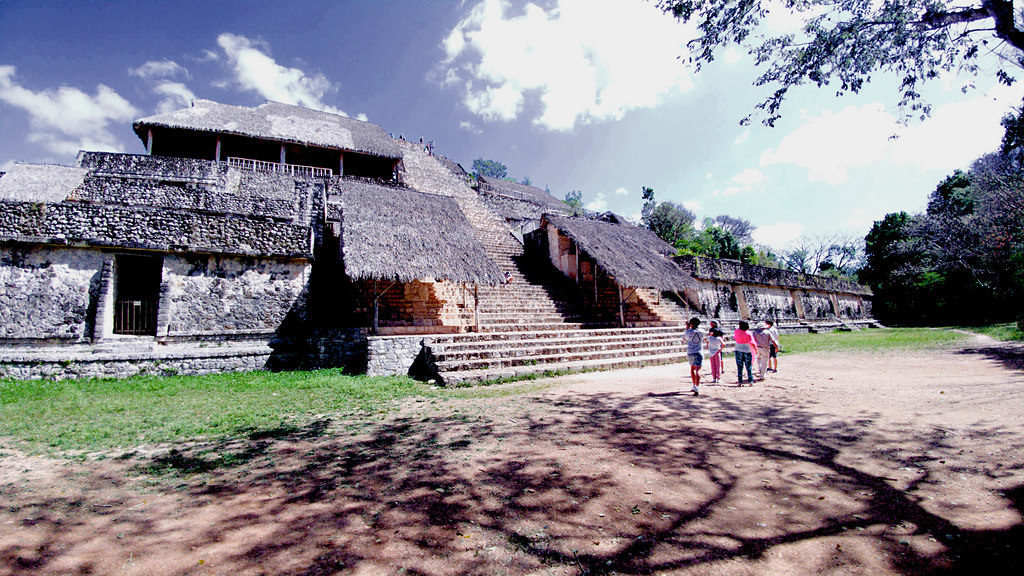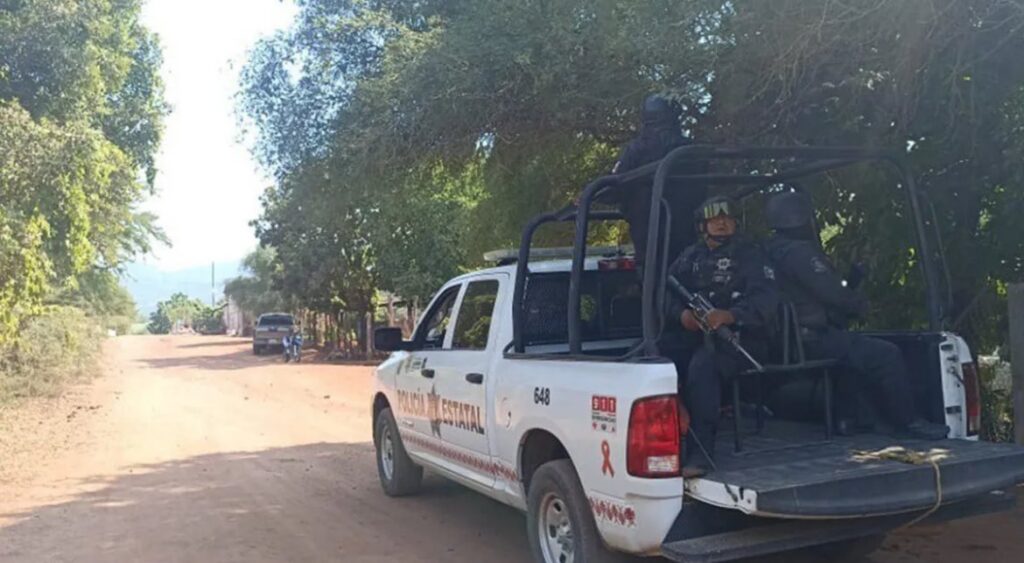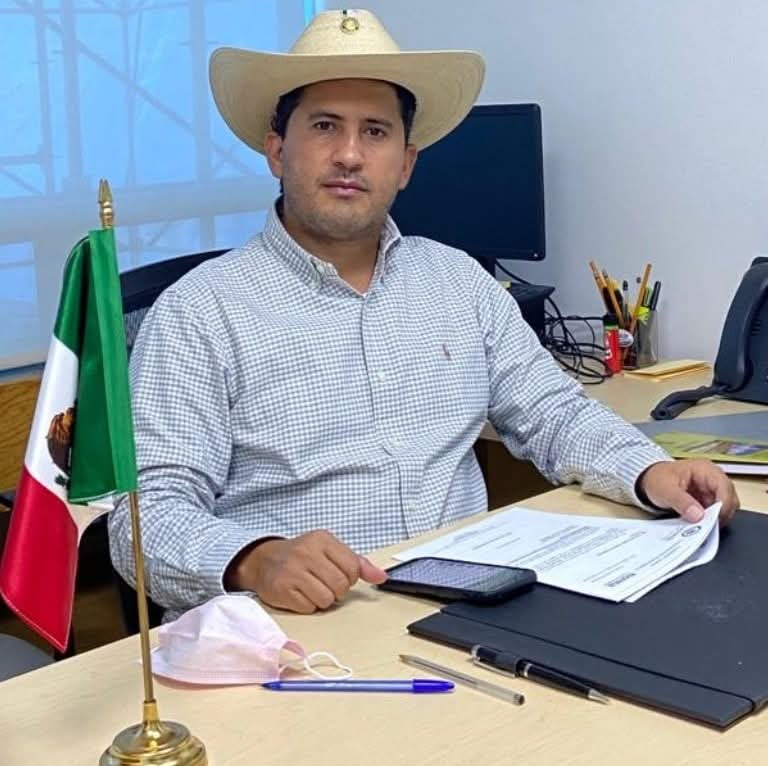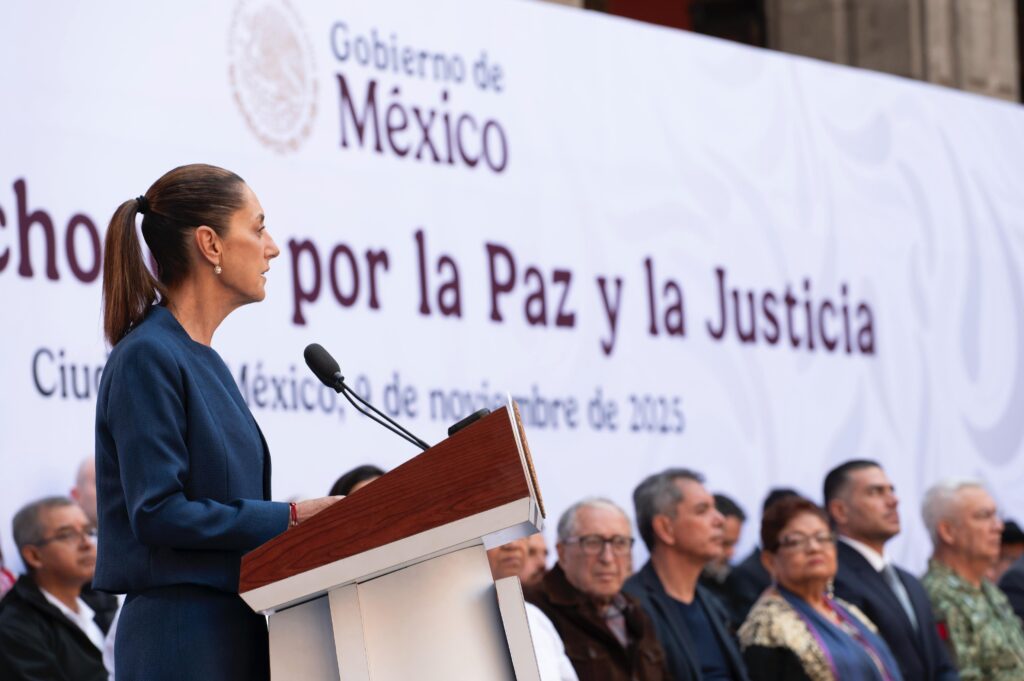Mexico City, Mexico – On November 5, the United States will elect its next president in a race that has come down to Democrat Kamala Harris and Republican Donald Trump.
For US voters, the issue of immigration has increased its importance in these elections, particularly amongst Trump supporters, according to a new Pew Research Center study.
Although it is difficult to estimate the total number of migrants that crossed the US-Mexico border, the BBC, citing US Border Patrol data, found that there were 8 million “encounters” with migrants during President Biden’s administration and 2.4 million under Trump. Encounters include illegal crossings as well as those who attempted to enter legally but were “deemed inadmissible.” And while the two candidates’ rhetoric differs vastly regarding immigrants, they both have said they want to fix immigration and strengthen the southern border with Mexico.
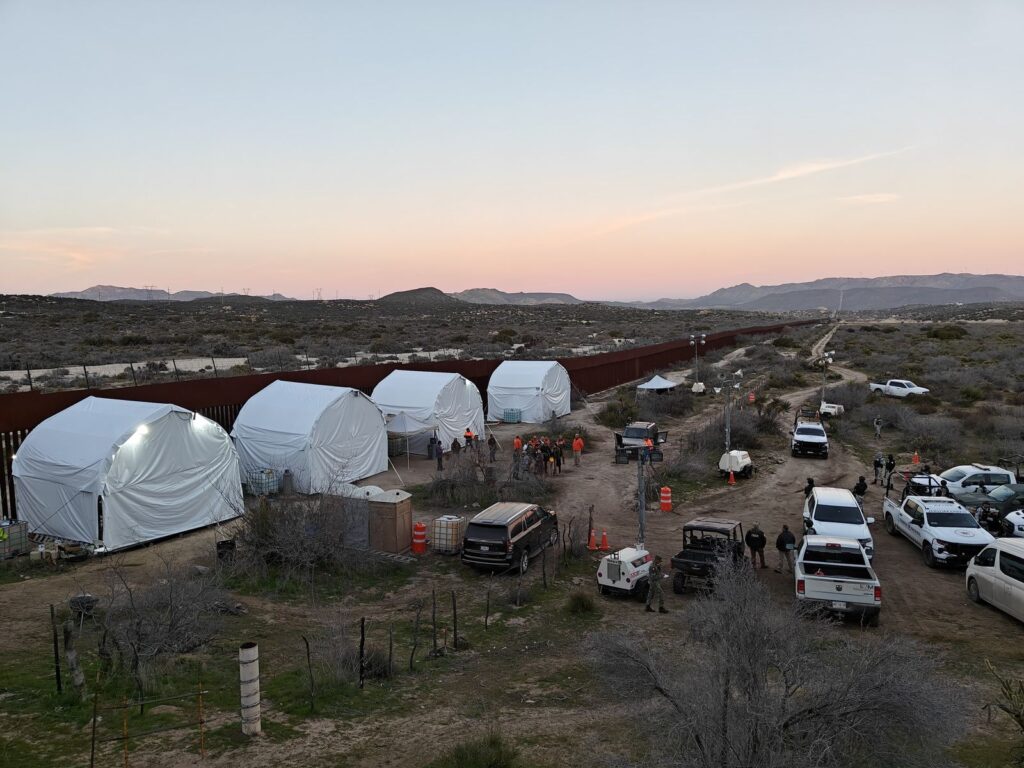
It’s not just US citizens eyeing next Tuesday’s elections, however. Roughly an 11-hour drive south from the nearest border crossing, in a migrant shelter in Mexico City, people making their way to the US border are also concerned about the election’s potential impact on the country’s immigration system.
In particular, Venezuelans, many of whom are fleeing oppressive conditions under President Nicolas Maduro in hopes of a better life in the US, have conflicting views about the presidential candidates.
“I feel fear,” a 41-year-old Venezuelan man who left his country two months ago to head to the US, told Aztec Reports. The man, who asked that we not publish his name for fear of reprisal, said he hoped to reach the US to send back money to his two children in the state of Carabobo.
“What I hear is that President Donald Trump will take reprisals against migrants as soon as they arrive in the United States,” he said. “Especially against those who are undocumented and for those who haven’t arrived yet; I think their chance for a better future is fading.”
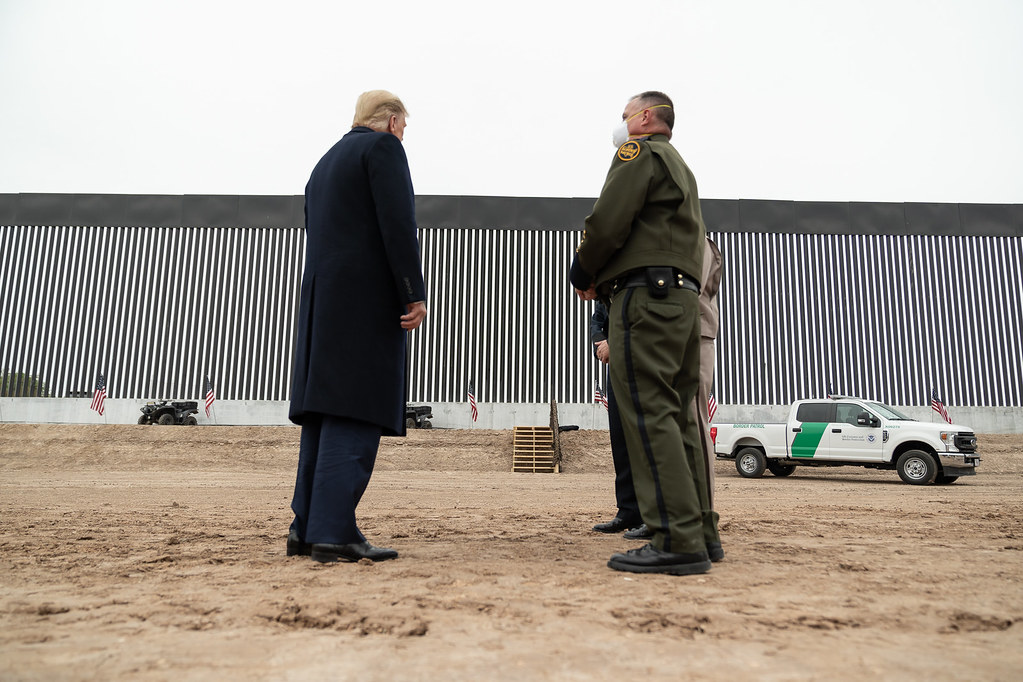
It became clear speaking with the migrants at the shelter that most of them were much more familiar with Trump, who has constructed much of his political brand out of demonizing migrants. In his 2016 campaign he called them “rapists” and in his 2024 campaign he doubled down on a false story that Haitian immigrants in Springfield, Ohio were eating people’s pets. He’s even promised to carry out mass deportations of millions of migrants already in the US if elected president.
Despite these fears, the man said he had mixed feelings for Trump, especially because of the president’s tough talk on Maduro.
“It’s kind of contradictory … On one hand, I would like Donald Trump for his stance on [the government of Venezuela],” he said. “But at the same time, I wouldn’t like him because of the policies he wants to implement against migrants.”
Eulises Maurin, a former accounting professor from Caracas who currently works as a cook in a migrant shelter, shares the man’s concern over the potential repercussions for migrants like himself if Trump is elected.
“What happens if we side with Donald Trump? His political campaign has been based 100% on anti-immigrant policies.” He said it’s not enough that Trump is anti-Maduro, “he is primarily going to attack migrants.”
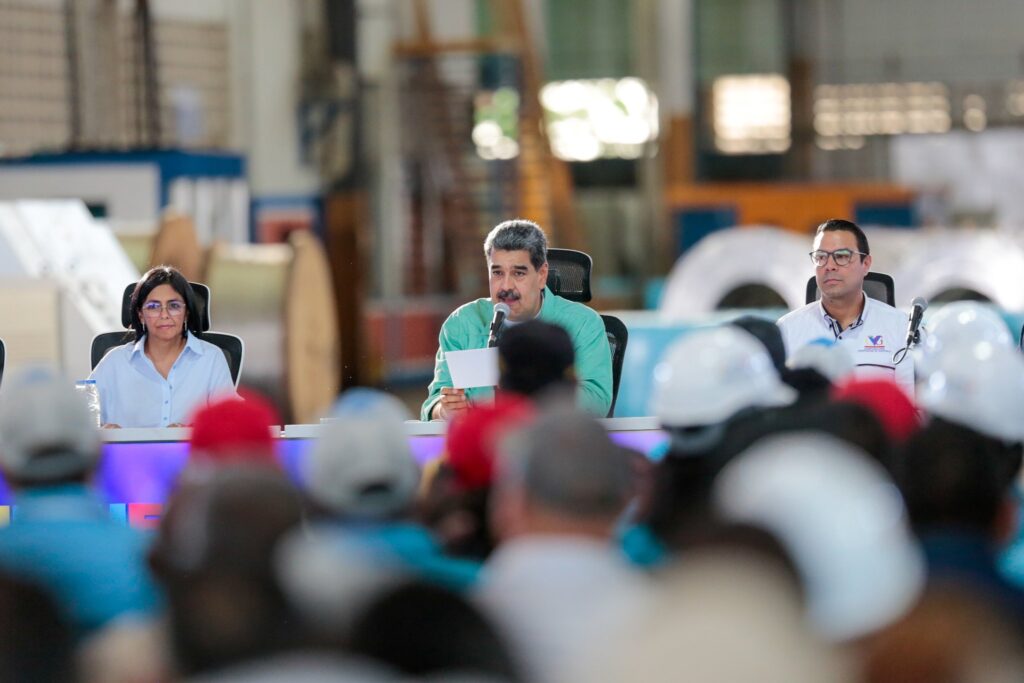
The professor seemed to have a somewhat less developed opinion on Harris when asked about the possibility of her winning the election in November. “I don’t know her, but it must be the same as Joe Biden with his policies,” Maurin said. “It’s like one day he’s good and the next day he’s bad … sometimes he launches a pro-immigration policy, and suddenly he launches another one against it.”
Both immigration as well as the candidates’ stances on Venezuela were factors for migrants at the shelter, and Venezuela relations under Trump versus the Biden/Harris administration differ greatly.
The Trump administration imposed crippling sanctions on Venezuela, deepening the country’s economic crisis. What’s more, his former national security advisor, John Bolton, said Trump thought it would be “cool” to invade Venezuela.
Biden, on the other hand, tended to take a softer public stance on Venezuela. Amid oil shortages during the Russia-Ukraine war, in late 2023, he lifted some sanctions on the country in exchange for the promise of free and fair elections. In April, Biden reinstated sanctions citing the Venezuelan government’s failure to do so. And following the widely disputed elections in July, his administration sanctioned even more Venezuelan officials.
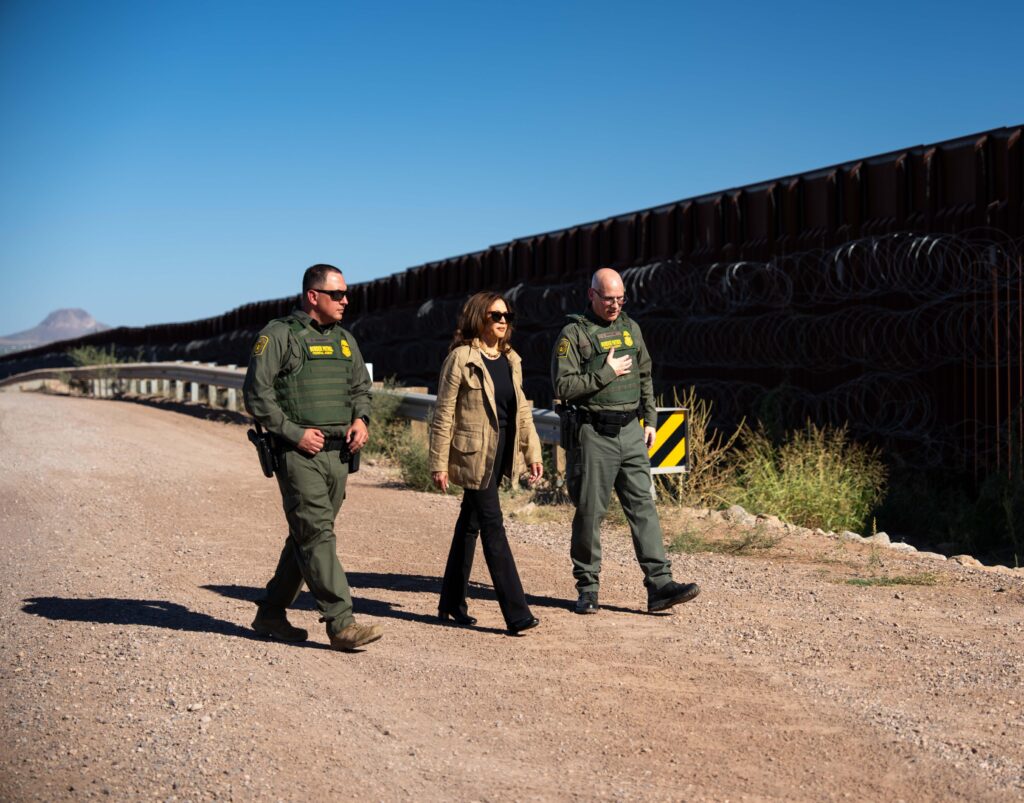
“Diaspora groups and especially Venezuelans tend to be pretty hawkish,” the Americas director for the Center for Strategic and International Studies (CSIS), recently told Anusha Rathi for Foreign Policy. “The idea of negotiations with the regime or the idea of lifting sanctions in order to try to negotiate is not something that many of them are likely to favor.”
While the decision of who leads the world’s largest military and economy has ramifications for people across the globe, for Venezuelans fleeing their country’s deepening economic and humanitarian crisis and making their way to an uncertain future in the US, Tuesday’s presidential election holds a unique complexity.
“It is difficult, because it is favorable for us to have a Trump at some point and a Harris at another point,” said Jonás Gregorio González Rodríguez, a barber from Chacao, Venezuela who is staying in the migrant shelter. “So we are like this, we don’t know who to go with, but we need a balance.”


